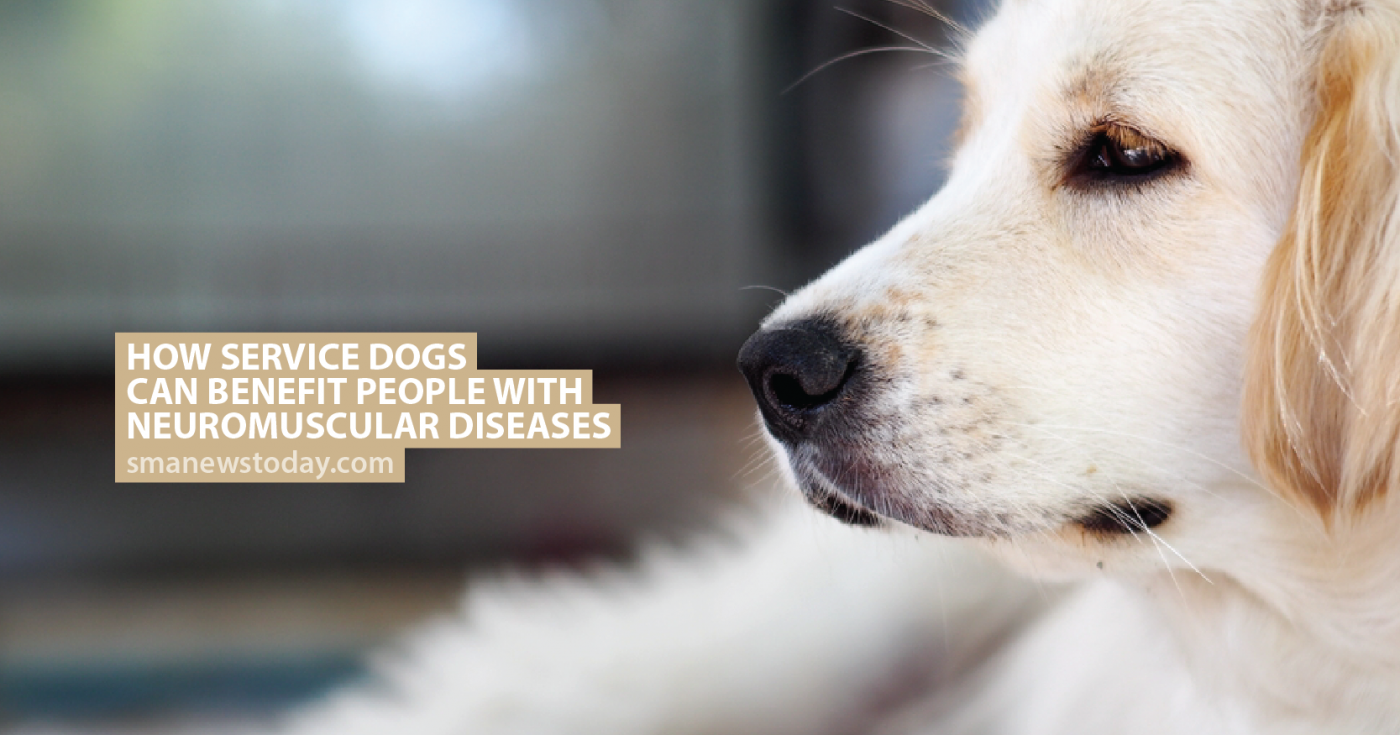How Service Dogs Can Benefit People With Neuromuscular Diseases

Service dogs are typically thought of as necessary companions for the visually impaired, but service and therapy dogs can be incredibly helpful for those with neuromuscular disorders.
As well as being a trusted friend, service dogs can expand owners’ motor abilities, granting them new independence and allowing them to get more out of life. Adults and children with neuromuscular diseases like spinal muscular atrophy (SMA), muscular dystrophy (MD) and multiple sclerosis (MS) may find introducing a service dog to the family improves their lives, allowing them to take a little pressure off their caregivers and giving them a best friend for life.
Here are just a few benefits that having a service dog can bring to people who live with neuromuscular diseases according to healthfitnessrevolution.com, mira.ca, the Lung Institute, and rover.com.
Wheelchair Assistance
Service dogs can be trained to pull wheelchairs and to help wheelchairs up ramps and onto sidewalks. They can also help their owner move in and out of the wheelchair.
Anxiety Relief
Having a chronic illness can bring about many emotional and mental health problems. The calming nature of service and therapy dogs can help ease anxiety and petting dogs is known to release endorphins and reduce stress.
MORE: Five ways Cure SMA offers help to newly diagnosed SMA families
Retrieve Items
Service dogs can help neuromuscular disease patients by picking up dropped items and fetching items from other rooms, a vital service for someone who may find getting around difficult and painful.
Lowers Blood Pressure and Heart Rate
There is evidence that stroking a dog and sitting next to a dog lowers blood pressure and heart rate. The soothing effects of their body heat may also help with pain relief.
MORE: 9 ways a physical therapist can help those with SMA.
Improved Balance
Walking with a service dog can help people with milder forms of neuromuscular disorders who have trouble with their balance. The dogs can also help prop their owners in place to prevent falls.
Good Distraction
Looking after a service dog gives people something to focus on other than their illness. It can help patients develop positive routines and force them to get up and go out.
MORE: 11 function and mobility aids for children with SMA.
Exercise
Service dogs, like all dogs, need exercise, so having a service dog encourages owners to get some exercise each day.
Attract Attention
If you need help but are unable to draw attention yourself, your service dog will be able to bark loudly to attract attention from passersby or neighbors.
MORE: How to handle breathing difficulties in SMA.
Promote Communication
Dogs have been known to help promote communication and often prompt conversation from strangers when out and about. They have also been used to help patients with speech disorders (source sciencedirect).
Help Around the House
Therapy dogs are able to help people around the house with simple tasks such as answering the doorbell, retrieving medication, opening and closing doors, and switching lights on and off.
MORE: This robot helps children with disabilities get more out of school.
SMA News Today is strictly a news and information website about the disease. It does not provide medical advice, diagnosis or treatment. This content is not intended to be a substitute for professional medical advice, diagnosis, or treatment. Always seek the advice of your physician or another qualified health provider with any questions you may have regarding a medical condition. Never disregard professional medical advice or delay in seeking it because of something you have read on this website.







